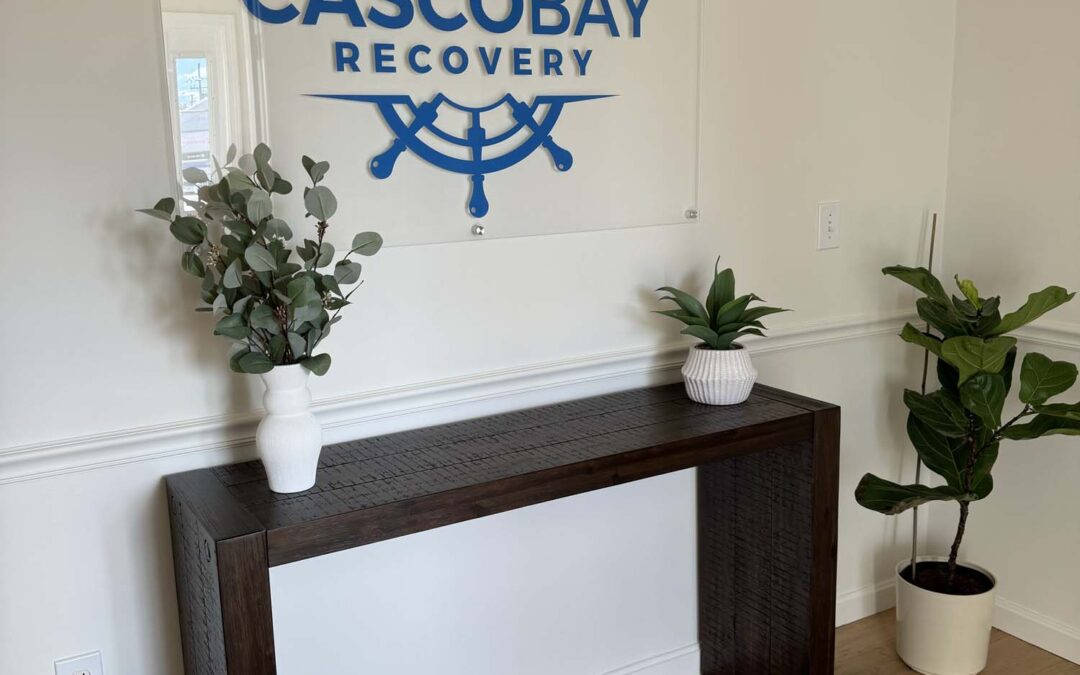Addiction is by far one of the worst afflictions a person could go through. It could lead to massive behavioral changes that could either be overtly obvious or even insidiously discreet. This is why numerous studies have been done on addiction and the things that could possibly cause it. Ultimately, the goal of these studies on addiction is to figure out effective ways to prevent people from developing this illness. In pursuit of this goal, the question often comes up, is addiction hereditary? To figure out if indeed addiction is hereditary or not, one must first understand what addiction. One must also discover how addiction is different from just the simple, intense liking of something.
The Signs and Symptoms of Addiction
In most cases, addiction is characterized by a drastic and irregular change in one’s behavior and physical appearance. One of the more noticeable behavioral changes that a person who suffers from substance addiction often experiences is the sudden need to be secretive and vague.
Changes in Behavior
People dealing with substance addiction often exhibit a need to be secretive about their lives. This is because of the stigma associated with addiction. Some people who suffer from substance addiction are able to be a bit more subtle about their need for secrecy. Most individuals with substance addictions though will often avoid any confrontation or discussion about their conditions.
Most people who suffer from addiction start avoiding the usual social circles that they belong to. People with substance addictions even often avoid family members, loved ones, and close friends.
Physical Changes and Symptoms
People with substance addictions often exhibit sudden drops or gains in weight. Another physical change that people who suffer from addiction often start exhibiting is an increasing pallor in their skin tone. Also, people with substance abuse issues often suffer from an inability to maintain a kept and tidy appearance. Some substance abusers may even start developing a pronounced, sickly appearance, clammy and sweaty skin, shaky and trembling hands, and/or outright seizures.
Although horrible, many of the physical signs and symptoms of substance addiction are similar to those of other chronic illnesses. Thus, some individuals who suffer from alcohol or drug addiction are able to mask their conditions. This makes it appear as if their physical ailments are due to other causes. There are even rare occasions where some individuals with substance abuse issues do not manifest any physical change at all.
Psychological and Neurological Symptoms
Abusing substances can cause a person to be in an altered state. This is because alcohol and drugs affect people’s body chemistry. Being in such an altered state can even seem appealing to substance abusers as they may use it to cope with the burdens of life.
Chronic alcohol and/or drug abuse can cause long-term physical damage though. This is because chronic substance abuse often alters the body’s chemistry beyond the point where it can restore its normal functioning. This is why many people who abuse substances exhibit psychological changes such as mood swings. In some cases, chronic substance abuse can even induce severe paranoia. This makes people with substance addictions think that someone, or everyone, is out to get them or do them harm.
The more lamentable psychological effects of chronic substance abuse include memory loss and degradation of cognitive function. As a result, many people with substance addictions exhibit impairments in their judgment and struggle with complex thinking. The negative effects that using substances can have on people’s judgment and thinking is exactly why there are laws that prohibit people from driving motor vehicles while under the influence.
Is There a Connection Between Genetics and Addiction?
It is not uncommon for people who are closely related or live in the same household to suffer from the same substance abuse issues. Because of this fact, many people wonder, is addiction hereditary? The question of whether or not addiction is hereditary has been looked at by numerous studies. The results of these studies have varied though.
There is a study published by the National Academy of Sciences that suggests that the tendency to become an alcoholic or a cocaine addict may run in the family. Other studies into the matter suggest that there is a greater likelihood for a member of a family to develop an addiction if that person has family members with any history of substance abuse.
Most likely, there is a predisposition present within immediate family members that make them more susceptible to abusing certain substances. This predisposition, coupled with the knowledge that a family member has indeed abused substances at one point, will often “open the door” to one’s own eventual development of substance addiction.
One’s environment can also be a large contributing factor to one’s development of substance addiction. This is evident in the fact that there are cases where individuals with no family history of substance abuse who live in areas where alcohol and drug abuse are prevalent, develop substance addictions.
Daily exposure to an alcohol and drug-filled environment can wear down almost anyone. This is especially true if a person happens to be going through a rough patch in life.
Treatment and Recovery from Addiction
Is drug addiction hereditary, or “forced” on a person by way of a harsh environment? Regardless of the answer to this question, there are treatments available that could help individuals achieve and maintain recovery. It is all a matter of knowing what treatments would prove to be most effective, and where they could be found.
There are a number of addiction treatment program options. All of these programs have been tried and tested and recommended for their success rate with those who have undergone and completed the therapy.
Detoxification Treatment
Detox is typically the initial phase of addiction treatment. Detox is the process of ridding the body of harmful substances. Toxic substances have a great tendency to stay in the body for a long period of time. This is particularly true after frequent and repeated drug use. The detoxification process seeks to return the body to its natural and normal body chemistry. A body chemistry that is free of the substances that the patient has become addicted to.
An unfortunate consequence of the detox process is the onset of withdrawal symptoms. That’s why it’s best for individuals who are detoxing from substances to do so with a trained medical staff present. There is always the possibility of detox patients having extreme reactions to the detox process. This is just another reason why medical professionals need to be present during detox.
Behavioral Treatment
Addiction causes radical changes in behavior. These changes mostly stay for a prolonged period of time, even when the patient is well on his or her way to recovery. A person becomes addicted to something when that person gives in fully to his or her compulsions to indulge in it, even if that person knows that it is harmful. It is this compulsion that is addressed during behavioral treatment. Willpower is essential to making sure a relapse does not occur, as it is willpower that fuels the urge to say NO to using the substance again.
Behavioral treatment includes fortifying a person’s ability to cope with stress and other situations. In many cases, saying no to using substances when you have a substance abuse problem is not only difficult, but nearly impossible. This is particularly true in stressful situations that could sorely test a person’s resolve.
Medication-Assisted Treatment
Medication-assisted treatment (MAT) might seem contrary to the entire premise of moving away from substances since a substance is being introduced into the system as a form of treatment. This substance, however, is designed to actually reduce the compulsions and cravings that a patient may experience due to withdrawals.
Some typical medications used in this type of treatment include naltrexone, buprenorphine, and methadone. These medications have a high rate of success in reducing the relapse rate of rehab patients.
Residential/Inpatient Treatment
Some cases of addiction are so severe that the patient needs constant monitoring and care from trained professionals while in treatment. In such cases, a rehab patient will receive residential or inpatient treatment. Rehab patients with severe addictions who have not responded positively to other forms of addiction treatment are also often given residential treatment. Residential and inpatient treatment programs require their patients to live in rehab facilities 24/7 during the period of time that they are receiving care.
Dual Diagnosis Treatment
Addiction treatment patients who also suffer from co-occurring mental health issues receive dual diagnosis treatment. This is because dual diagnosis treatment programs treat both substance addiction and mental illness simultaneously. Dual diagnosis treatment programs can be inpatient or outpatient in format.
Outpatient Treatment
Outpatient treatment programs are rehab programs that allow patients to live in their own homes and commute back and forth from their homes to rehab facilities during the period of items that they are receiving treatment. Treatment programs that are outpatient consist mostly of meeting with either a counselor or a therapist on a regular basis.
This form of treatment allows quite a bit more freedom for the patient. Outpatient treatment is mostly for those who have milder forms of addiction and are deemed not a danger to themselves or to others. As such, this form of treatment is significantly less restrictive and intensive than most other types.
Holistic Addiction Treatment
Some rehab patients prefer to receive alternative forms of treatment. In fact, many rehab facilities incorporate alternative forms of treatment within their standard treatment programs. Alternative forms of addiction treatment, otherwise known as holistic addiction treatment, are meant to heal the body, mind, and spirit, rather than just the body.
Let the Leading Addiction Treatment Center in Portland, Maine Lead You to Recovery
We here at Casco Bay Recovery in Portland, Maine know how difficult it is to achieve addiction recovery. This is why we do everything we can to ensure that our patients always receive the best care possible. Here at Casco Bay Recovery, we don’t have a one-treatment-for-all-problems mentality. We treat each case uniquely so that each patient receives the proper care that he or she really needs. This is how we ensure that our rehab patients are given the best chances possible to be able to achieve and maintain recovery.









